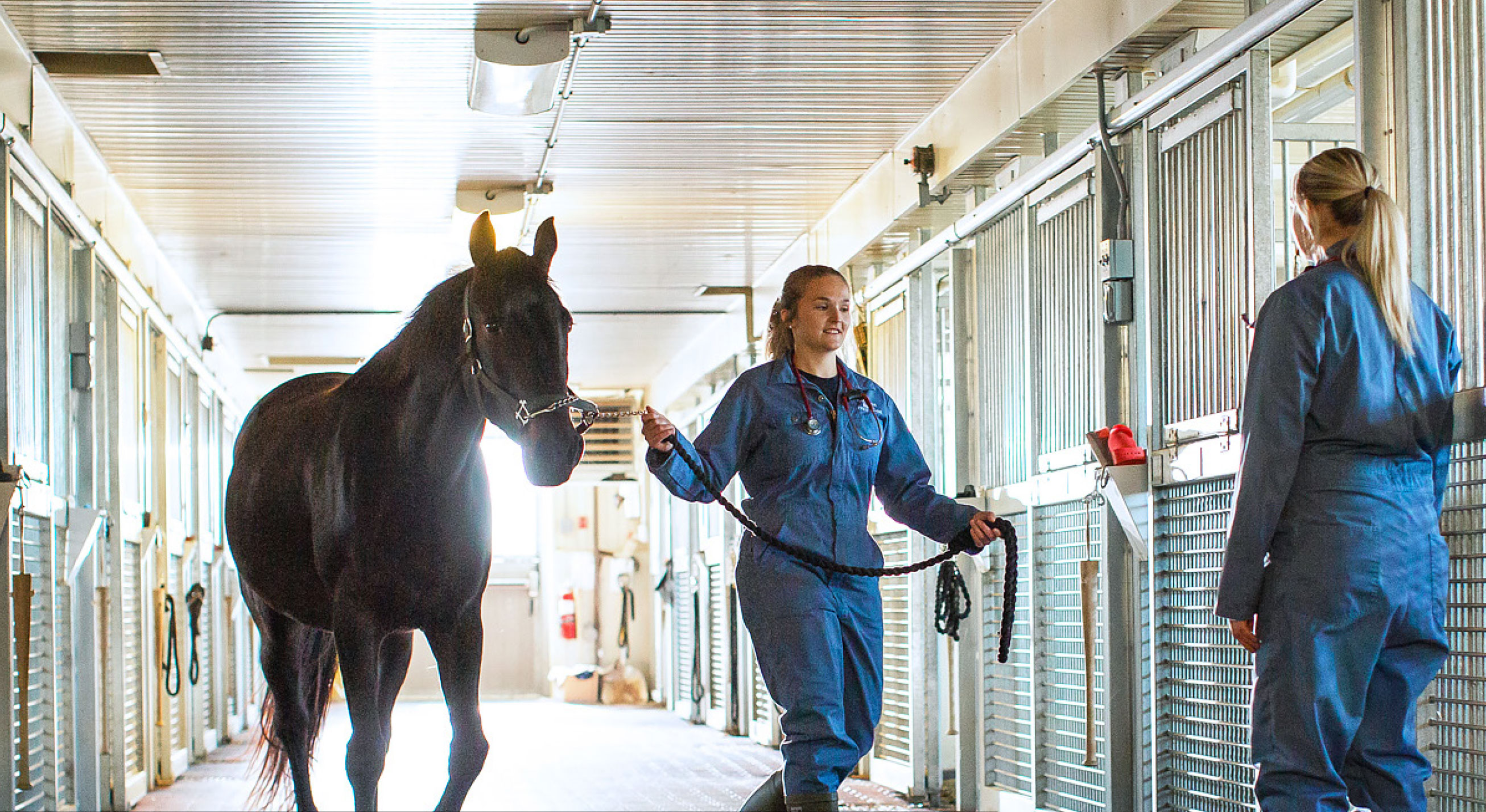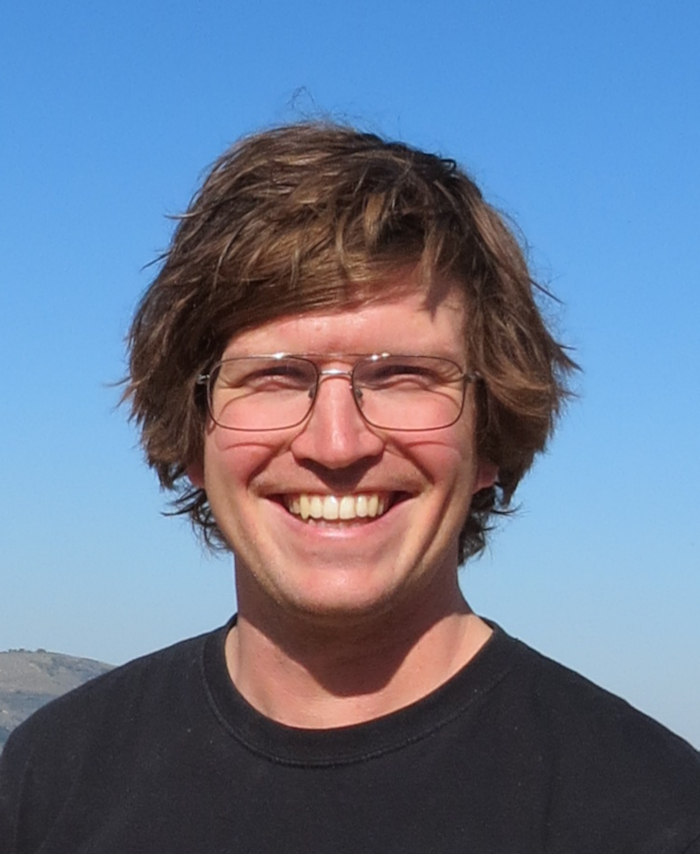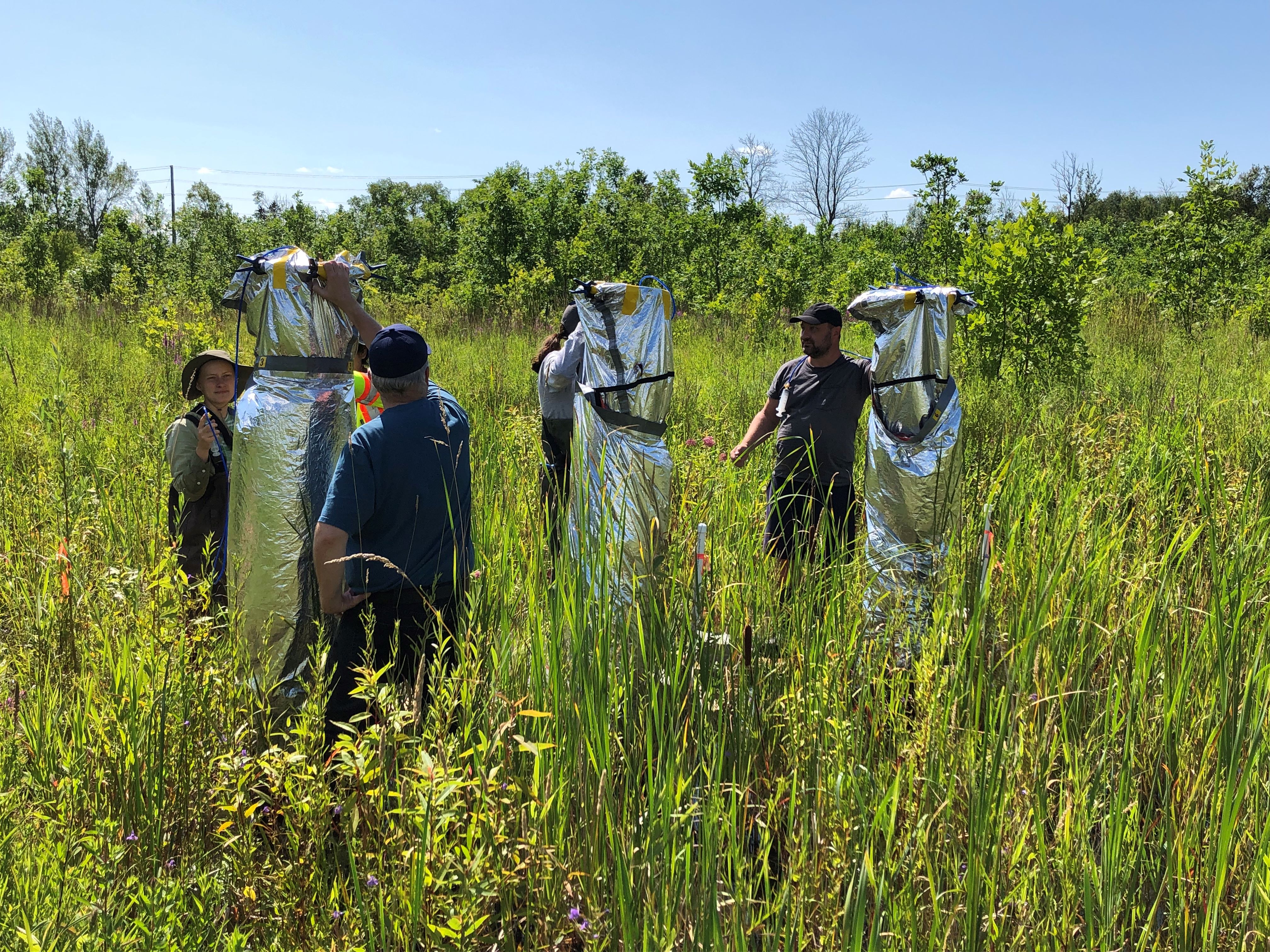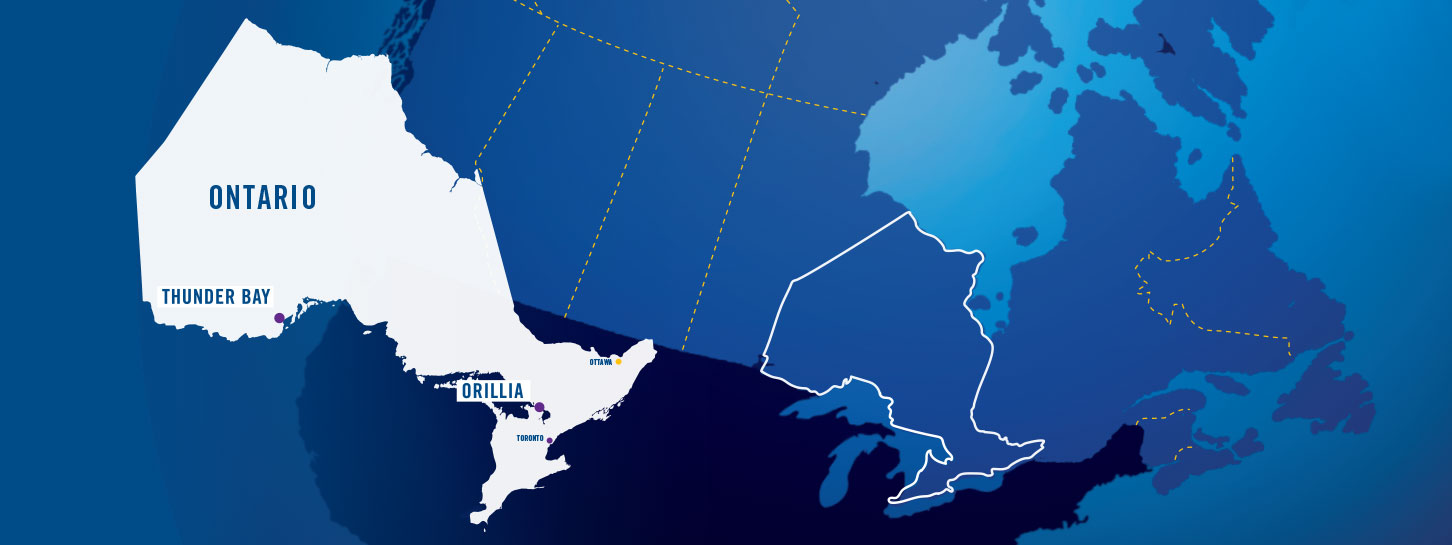Creating Economic Prosperity
Lakehead President Dr. Gillian Siddall, Research and Innovation VP Dr. Andrew P. Dean, and Innovation Development Director Ellen MacKay celebrate Lakehead's IEP designation.
The Association of Public and Land-grant Universities (APLU) has named Lakehead an Innovation & Economic Prosperity (IEP) University. Lakehead is only the second Canadian university to receive this international designation granted to North American public research universities working with public and private sector partners to support economic development through activities such as innovation and entrepreneurship, technology transfer, talent and workforce development, and community development. Lakehead received the IEP designation after an independent panel reviewed its application, including an internal review and analysis of its economic engagement activities conducted with outside stakeholder input. "From talent development to pathbreaking research to entrepreneurship and beyond, institutions have a central role to play in economic development," said APLU President Mark Becker. "We're pleased to recognize Lakehead University for its commitment to engaging its community around these issues to advance regional economic development."
Lakehead Named Top Canadian Research University
Lakehead has been ranked the number three undergraduate research university in the country by Research Infosource. "We continually place among the top universities in the country for citations and research funding," said Dr. Andrew P. Dean, Lakehead's vice-president, research and innovation. "This ranking reflects our commitment to working with numerous partners across our regions as we address such current challenges as health-care inequities, food insecurity, housing access, and climate change. Every year, Research Infosource—Canada's source of research and development intelligence—releases its assessment of "Canada's Top 50 Research Universities" using a balanced scorecard of research inputs and outputs. Between 2015 to 2019, Lakehead was ranked in the top spot—the first time an institution in the undergraduate category was ranked Research University of the Year for five years in a row.
Vet Program Update Lakehead University is moving ahead with establishing the Collaborative Doctor of Veterinary Medicine Program (CDVMP). This joint initiative between Lakehead and the University of Guelph will address Northern Ontario's critical shortage of veterinarians.
Lakehead University is moving ahead with establishing the Collaborative Doctor of Veterinary Medicine Program (CDVMP). This joint initiative between Lakehead and the University of Guelph will address Northern Ontario's critical shortage of veterinarians.
Photo Credit: Ontario Veterinary College
CDVMP students will complete their first two years of the Doctor of Veterinary Medicine degree at Lakehead and their second two years at the University of Guelph's Ontario Veterinary College (OVC). To allow Lakehead to maintain its plan of beginning the CDVMP program in 2025, however, the first cohort of students will be taught at the OVC instead of at Lakehead. This slight adjustment in CDVMP's timeline was caused by the need to secure additional funding after rising inflation increased building costs. Throughout 2024 and 2025, Lakehead will focus on building two new facilities necessary to deliver the first two years of curriculum on the Thunder Bay campus and will be ready for a first intake of CDVMP students in 2026. "I want to assure you that this one-year adjustment does not alter our vision or the overall structure of the CDVMP," said Lakehead President Gillian Siddall. "This change allows us to ensure that our facilities are fully prepared to deliver the high-quality, fully accredited veterinary education we are committed to providing."
Climate Change Education for a Better Planet Dr. Ellen Field, a Lakehead Orillia education professor, is helping accelerate the integration of climate change education into teacher education programs across Canada. She is leading a two-year project in partnership with Dr. Hilary Inwood from the Ontario Institute for Studies in Education (OISE) at the University of Toronto, which has received $449,000 from Environment Climate Change Canada (ECCC).
Dr. Ellen Field, a Lakehead Orillia education professor, is helping accelerate the integration of climate change education into teacher education programs across Canada. She is leading a two-year project in partnership with Dr. Hilary Inwood from the Ontario Institute for Studies in Education (OISE) at the University of Toronto, which has received $449,000 from Environment Climate Change Canada (ECCC).
Dr. Ellen Field with Lakehead students on the Orillia campus.
This project will support climate change education for pre-service teachers and faculty of education members as well as provide professional development opportunities for current teachers. Dr. Field believes that educators at all grade levels are well-positioned to lead the cultural shifts necessary for equitable, just, and sustainable forms of living on the Earth. Visit https://accelerating-cce.ca/ for more information about this project.
Law School Celebrates 10th Anniversary

When Lakehead's Bora Laskin Faculty of Law (BLFL) welcomed its charter class in September 2013, it was the first new law school in Ontario in 42 years. This accomplishment was only possible because of the strong support of Indigenous leaders and the Northwestern Ontario legal community. Together, they worked with Lakehead to give Northern Ontarians access to justice by addressing the chronic shortage of lawyers in the region. The 2023-24 academic year marked the 10th anniversary of the law school, and the past few months have been a time to reflect upon the wide-ranging impact BLFL has had since its establishment. "We were the first Canadian law school to have an integrated practice curriculum," explains Sarah MacLeod, BLFL's Manager of Strategic Initiatives and Student Engagement. In 2020, when the Toronto Metropolitan University opened their Lincoln Alexander School of Law, they adopted Lakehead's integrated practice model. "We've reframed what a law classroom looks like," McLeod says. The law school's bold vision extends not only to how students are taught, but what they are taught. Its curriculum is centred around the pillars of Indigenous and Aboriginal law, environmental and natural resources law, and preparing students to practice in small towns and rural areas.
$2 Million for Mineral Exploration
 Dr. Peter Hollings (left) and Dr. Noah Phillips (right) have received over $2.1 million from the Ontario Ministry of Colleges and Universities Ontario Research Fund – Research Excellence program. "The funding will allow us to continue to develop mineral deposit research at Lakehead University, which in turn will establish us as an essential partner in the search for Ontario's critical minerals and the training of the next generation of geoscientists," Dr. Hollings said. Dr. Hollings is the NOHFC industrial research chair in mineral exploration and the director of Lakehead's Centre of Excellence for Sustainable Mining and Exploration. Dr. Phillips is an assistant geology professor. This research will develop more efficient exploration models for industry partners seeking new deposits to be developed into mines, in particular, nickel, copper, platinum, and gold. Industrial collaborators include Goldshore Resources Inc., Wesdome Gold Mines Ltd., Romios Gold Resources Inc., Impala Canada Ltd., Generation Mining, Clean Air Metals Inc., and Enersoft Inc.
Dr. Peter Hollings (left) and Dr. Noah Phillips (right) have received over $2.1 million from the Ontario Ministry of Colleges and Universities Ontario Research Fund – Research Excellence program. "The funding will allow us to continue to develop mineral deposit research at Lakehead University, which in turn will establish us as an essential partner in the search for Ontario's critical minerals and the training of the next generation of geoscientists," Dr. Hollings said. Dr. Hollings is the NOHFC industrial research chair in mineral exploration and the director of Lakehead's Centre of Excellence for Sustainable Mining and Exploration. Dr. Phillips is an assistant geology professor. This research will develop more efficient exploration models for industry partners seeking new deposits to be developed into mines, in particular, nickel, copper, platinum, and gold. Industrial collaborators include Goldshore Resources Inc., Wesdome Gold Mines Ltd., Romios Gold Resources Inc., Impala Canada Ltd., Generation Mining, Clean Air Metals Inc., and Enersoft Inc.
Wetlands Capture Greenhouse Gases Lakehead researchers are highlighting the vital role that freshwater wetlands play in reducing greenhouse gas emissions. A recent study published in the Journal of Geophysical Research: Biogeosciences found that wetlands within the Lake Simcoe watershed were 50 per cent more effective at storing carbon than other wetland ecosystems, second only to salt marshes near temperate seas.
Lakehead researchers are highlighting the vital role that freshwater wetlands play in reducing greenhouse gas emissions. A recent study published in the Journal of Geophysical Research: Biogeosciences found that wetlands within the Lake Simcoe watershed were 50 per cent more effective at storing carbon than other wetland ecosystems, second only to salt marshes near temperate seas.
Students and faculty install greenhouse gas monitoring equipment at a newly constructed wetland near Newmarket, Ontario, called Cawthra Mulock.
The research was conducted by Lakehead sustainability sciences professors Dr. Florin Pendea (the study's lead author), Dr. Nanda Kanavillil, and Dr. Sree Kurissery, along with Dr. Gail Chmura of McGill University. Dr. Pendea's team spent three years collecting and examining soil properties and carbon accumulation rates over the last 100 years in swamps and marshes in the Lake Simcoe watershed. "This means that wetland conservation, particularly preventing drainage of wetlands, is critical in maintaining the vital ecosystem services they provide, such as carbon storage," Dr. Pendea said.
Improving Northern Ontario Crop Yields The governments of Canada and Ontario are investing up to $1.65 million over five years to the Lakehead University Agricultural Research Station (LUARS) in Thunder Bay. The funding is being made through the Sustainable Canadian Agricultural Partnership (Sustainable CAP) and will be used to improve the viability and yield of crops in Northern Ontario, and to develop and diversify the agricultural industry.
The governments of Canada and Ontario are investing up to $1.65 million over five years to the Lakehead University Agricultural Research Station (LUARS) in Thunder Bay. The funding is being made through the Sustainable Canadian Agricultural Partnership (Sustainable CAP) and will be used to improve the viability and yield of crops in Northern Ontario, and to develop and diversify the agricultural industry.
Left to right: LUARS Director Dr. Tarlok Sahota, Lakehead Research and Innovation VP Dr. Andrew P. Dean, Lakehead President Dr. Gillian Siddall, and Thunder Bay—Atikokan MPP Kevin Holland at the November 2023 funding announcement. Photo Credit: Michael Nicin
"It supports research in critical areas such as soil health, environmental sustainability, and climate change, reflecting our government's strong commitment to advancing agricultural science and innovation," said Thunder Bay—Rainy River MP Marcus Powlowski. The research will also focus on areas such as best management practices for Northern agriculture as well as research and knowledge co-developed with Indigenous researchers and communities. "Agriculture in the North is growing, and the research at LUARS is becoming increasingly important as farmers expand their operations in the region," said Ontario Minister of Agriculture, Food and Rural Affairs Lisa Thompson.
Meet Lakehead's Distinguished InstructorElectrical Engineering Professor Dr. Mohammad Nasir Uddin received Lakehead's highest teaching honour—the 2023 Distinguished Instructor Award—for his contributions to teaching excellence, educational innovation, and leadership at Lakehead. "Dr. Uddin is a tremendous teacher and academic leader who always puts his students first," said Lakehead Engineering Dean Dr. Janusz Koziński. Dr. Uddin teaches at Georgian College's Barrie campus and is the coordinator of the Electrical Engineering program offered through the Lakehead-Georgian Partnership, which allows students to earn both a degree from Lakehead and a diploma from Georgian. Lakehead's Senate Teaching and Learning Committee also noted Dr. Uddin's outstanding contribution to developing new undergraduate and graduate programs as well as his establishment of the Renewable Energy, Power Systems & Drives Research Lab in Barrie.
Cleaning Up the Great Lakes Protecting the Great Lakes is essential to the health and well-being of millions of Canadians, natural ecosystems, and the economy. That's why the Government of Canada has awarded $663,500 through the Freshwater Action Plan to support region-specific actions to restore the lakes' water quality and ecosystem health.
Protecting the Great Lakes is essential to the health and well-being of millions of Canadians, natural ecosystems, and the economy. That's why the Government of Canada has awarded $663,500 through the Freshwater Action Plan to support region-specific actions to restore the lakes' water quality and ecosystem health.
Minister of Indigenous Services Patty Hajdu announces $663,500 in funding on behalf of Minister of Environment and Climate Change Steven Guilbeault. Photo credit: Environment and Climate Change Canada.
Lakehead University has received $230,000 for a project to restore riparian and coastal habitat for fish and wildlife in the Thunder Bay Area of Concern and to build features that will filter stormwater before it reaches Lake Superior. Lakehead also received $108,500 to implement the Thunder Bay Area of Concern Wildlife Habitat Strategy and to facilitate community engagement. These are two of 24 projects funded under the Great Lakes Freshwater Ecosystem Initiative, part of the Government of Canada's Freshwater Action Plan to protect and restore freshwater bodies of national significance.
Can underwater robots swim like fish? Dr. Khalid is studying how eels (see above) and fish like tuna and salmon use chemical odours for their navigation and propulsion. Understanding how natural aquatic swimmers use chemical odours for navigation and propulsion is the subject of mechanical engineering professor Dr. Muhammad Khalid's current research. He and Dr. Chengyu Li from Villanova University in Pennsylvania have received a $25,000 Alliance International Catalyst Grant from the National Sciences and Engineering Research Council of Canada (NSERC) for this joint project. "We will study how fish sense the presence of predators, prey, food, and mating partners through fluctuations in velocity and pressure in the surrounding water," Dr. Khalid said. "We want to learn how odour signatures and chemical cues help fish navigate in complex underwater environments." They hope to use their findings to create highly maneuverable underwater robots for purposes including subsea explorations for natural resources, securing borders, and search and rescue operations.
Dr. Khalid is studying how eels (see above) and fish like tuna and salmon use chemical odours for their navigation and propulsion. Understanding how natural aquatic swimmers use chemical odours for navigation and propulsion is the subject of mechanical engineering professor Dr. Muhammad Khalid's current research. He and Dr. Chengyu Li from Villanova University in Pennsylvania have received a $25,000 Alliance International Catalyst Grant from the National Sciences and Engineering Research Council of Canada (NSERC) for this joint project. "We will study how fish sense the presence of predators, prey, food, and mating partners through fluctuations in velocity and pressure in the surrounding water," Dr. Khalid said. "We want to learn how odour signatures and chemical cues help fish navigate in complex underwater environments." They hope to use their findings to create highly maneuverable underwater robots for purposes including subsea explorations for natural resources, securing borders, and search and rescue operations.
Engineering Student Wins Vanier Scholarship Civil engineering PhD student Tristen Brown has been awarded a $150,000 Vanier Canada Graduate Scholarship—a national award for doctoral students. The funding will be used to support his research developing housing solutions for Indigenous communities contending with extreme climate conditions. "Winning this prestigious award would not have been possible without the unwavering support and dedication of my PhD supervisors in the Faculty of Engineering, and all my colleagues in the Structural and Wind Engineering Research Laboratory at Lakehead," Brown said. Across Canada, 166 doctoral students will receive a total of $24.9 million in support through the Vanier Graduate Scholarship that is jointly funded by the Natural Sciences and Engineering Research Council, the Canadian Institutes of Health Research, and the Social Sciences and Humanities Research Council.
Civil engineering PhD student Tristen Brown has been awarded a $150,000 Vanier Canada Graduate Scholarship—a national award for doctoral students. The funding will be used to support his research developing housing solutions for Indigenous communities contending with extreme climate conditions. "Winning this prestigious award would not have been possible without the unwavering support and dedication of my PhD supervisors in the Faculty of Engineering, and all my colleagues in the Structural and Wind Engineering Research Laboratory at Lakehead," Brown said. Across Canada, 166 doctoral students will receive a total of $24.9 million in support through the Vanier Graduate Scholarship that is jointly funded by the Natural Sciences and Engineering Research Council, the Canadian Institutes of Health Research, and the Social Sciences and Humanities Research Council.


